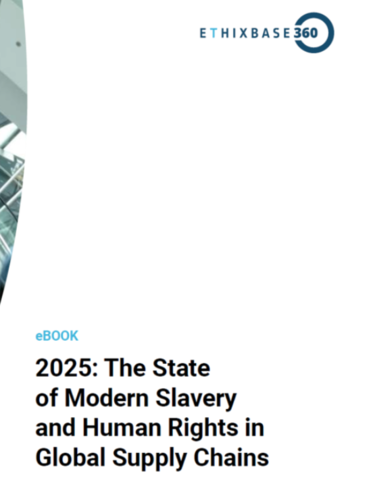PR: mission critical for all sectors

Alastair McCapra at the Chartered Institute of Public Relations argues that a lack of board level comms puts businesses in danger
With reputation risk a clear and present danger for almost every firm, it is a surprise that FTSE 100 boards have shown no progress in placing corporate affairs or public relations advice at the heart of their decision-making, according to recent research by the CIPR.
Why don’t big firms prioritise comms?
FTSE 100 organisations will all have seen major crises before, in some form, so may feel that if they’ve weathered previous storms, they will do well enough in the next one. That’s actually quite a big gamble given the speed with which crises can escalate in the modern world.
In the old days chairmen and CEOs could wait for a situation to become clearly critical and then decide to remedy it, often by bringing in crisis comms or reputation management specialists to help them.
Nowadays, crises can explode out of all proportion with very little warning. We might think of recent examples such as the claims by former staff that have severely damaged the CBI, or indeed the huge public row over ‘debanking’ that led to the resignation of Alison Rose from NatWest.
You can bring in your crisis experts once your crisis has erupted, sure, but having the right expertise on your board can help prevent that crisis from breaking at all. Preparedness can help manage an issue down so that it never breaks into a crisis, and if the unavoidable happens, a swift and well-planned response can be decisive.
The case for board-level comms
Some issues can take a long time to blow up into a full crisis. There are nearly 100,000 new cases of COVID every day, and 50 flights to Gatwick were cancelled or diverted on just one day last week because so many air traffic controllers caught it. A nuisance for some people, and not yet a crisis by any means.
But if COVID comes back with a vengeance how will air traffic function? Will people still want to travel? What will happen to the equilibrium most firms have found over the last 18 months between working at home and in the office? Will more people simply refuse to come in, or switch employers to those who are more flexible? Is it likely that the government will step in again with short-term support if travel, hospitality and other sectors see their customers dwindle away once again?
Having the right expertise on your board means you can identify and navigate these risks more effectively, understanding your employee and customer views, being ready with key messages for scenarios you have planned for, and responding quickly to worried suppliers, angry customers, anxious shareholders and inquisitive journalists.
The last twelve months have kept firms occupied with spiralling costs, uncertain regulatory environment, skills shortages and trade friction. Any one of these issues, or any combination of them, might take up most of a board’s attention. But crises rarely erupt because nobody was paying attention; they more often break out because people were focused on trying to fix something else at the time.
Most organisations will have reputational risk on their risk register, but the infrastructure for managing this risk is clearly less developed than it is for financial, regulatory or operational risk. One of the best ways of managing this risk is to have dedicated communications expertise at the board level. That way intelligence gathering from stakeholders is worked into the mix of how a board works and makes decisions.
Are some sectors better than others?
Although nearly half of FTSE 100 firms lack this expertise, a sector breakdown provides some interesting contrasts. All firms audited in the banking and media sectors had communications expertise on their boards. That is perhaps not surprising given that both are particularly prone to be objects of public criticism, anger and customer activism. Both are regulated, though in different ways and degrees, so the level of public scrutiny on them is unusually high.
In contrast, there was far less communications representation on the boards of firms in the construction and materials sector. A reason for this could be that many of them are B2B, so they may feel they have greater resilience in the face of most reputation risks.
While green protesters may block sites or campaign against projects, if your customers are governments or large public sector entities going through formal procurement processes it is true that it is harder to see that there is a straight line between reputational damage and lost future business.
Nevertheless, as ESG rises rapidly up the corporate agenda and the public grows more alert to greenwashing, there are emerging reputational risks for these firms that may not yet be fully factored in.
In between banks and media organisations and construction and materials, just 20% of FTSE 100 firms in the retail sector have communications expertise on their boards. Given their exposure to supply chain problems, labour shortages, customer activism and union activity, this is perhaps the biggest surprise in the research findings. The travails of some of our best-known high street brands suggest there may be some particular vulnerabilities here.
The rampant inflation of the last year may disappear into the view mirror over the next few months, but the toxic mix of risks that firms have to deal with will continue to swirl ever faster around them. To adapt an old saying, the best time to bring communications expertise onto your board was ten years ago. The next best time is today.
Alastair McCapra is CEO at the Chartered Institute of Public Relations (CIPR)
Main image courtesy of iStockPhoto.com

Business Reporter Team
Most Viewed
Winston House, 3rd Floor, Units 306-309, 2-4 Dollis Park, London, N3 1HF
23-29 Hendon Lane, London, N3 1RT
020 8349 4363
© 2024, Lyonsdown Limited. Business Reporter® is a registered trademark of Lyonsdown Ltd. VAT registration number: 830519543





